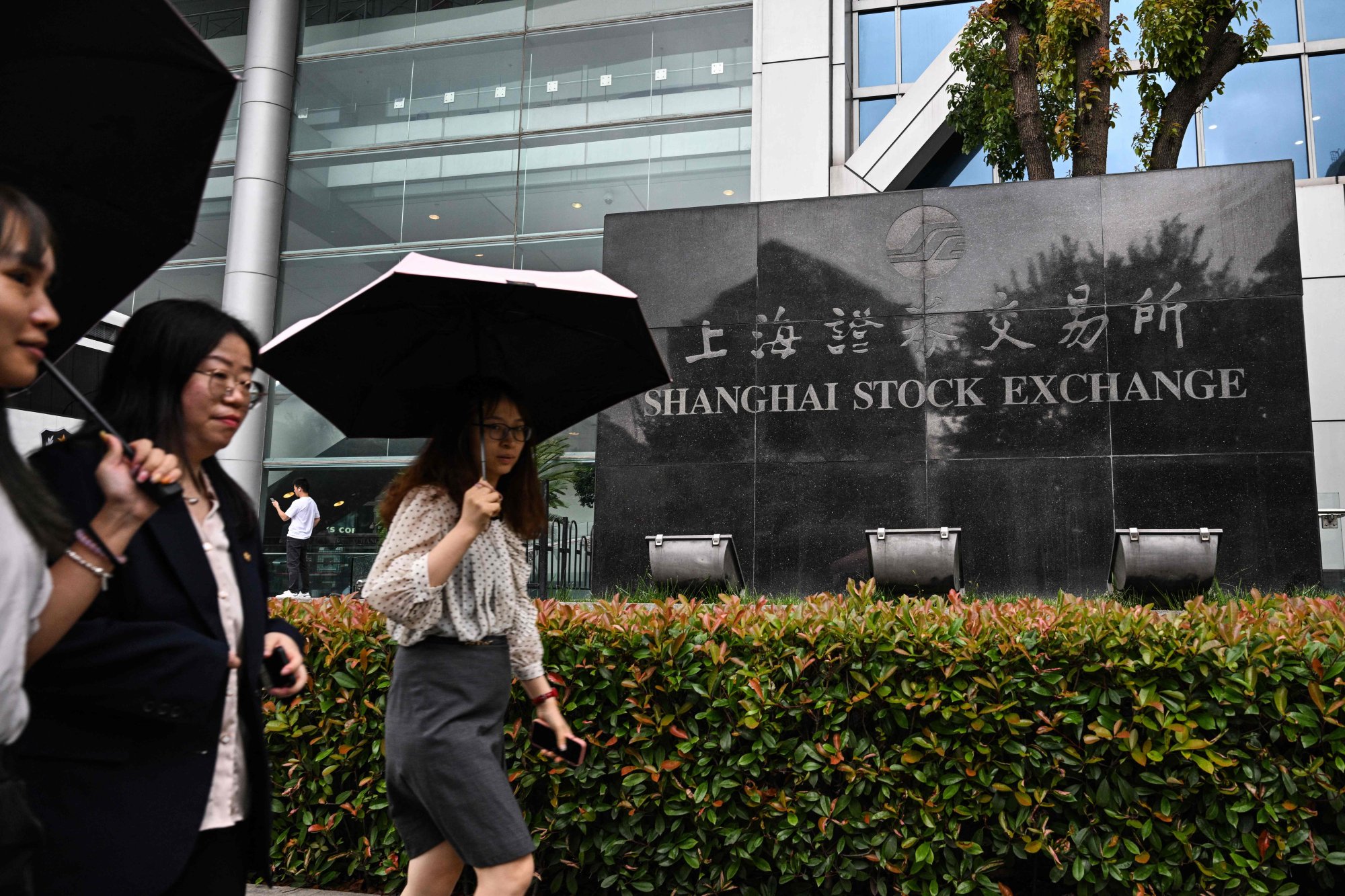The recent pullback is “a healthy correction” as the stimulus-powered rally got overheated while the momentum from various measures has petered out, according to Timothy Moe, chief Asia-Pacific equity strategist at Goldman Sachs. Further upside could be unlocked as policymakers announce more support, he added.
“It’s sort of [like] the market caught its breath, and we expect another leg up,” Moe said at a media briefing in Hong Kong on Tuesday.
The MSCI China Index, which tracks 702 Chinese companies listed at home and abroad, has corrected by 6.4 per cent since its peak on May 20 as renewed geopolitical tensions, patchy macroeconomic data and ongoing struggles in the property market prompted investors to take profits.
Meanwhile, the Hang Seng Tech Index, which tracks China’s tech heavyweights listed in Hong Kong, including Tencent and Alibaba, has declined more than 10 per cent since its most recent peak and briefly entered a technical correction on Monday.
“We expect the third plenum to have more announcements in both scope and granularity concerning the property market,” Moe said. Policymakers might be slightly disappointed with the market’s reaction to the previous rescue package and have realised that more is needed. If the direction laid out is forceful enough, the equity market is likely to find comfort in it, he said.
To be sure, risks remain. More macro indicators due this week, including the consumer and producer price indices for May, are likely to show that deflation pressure remains and that the economic recovery has yet to find a solid footing. Geopolitical tensions with the US, particularly as the US election approaches, could also flare up and rattle markets.

The market is likely to be rangebound for the next few weeks while awaiting further catalysts, Winnie Wu, chief China equity strategist at Bank of America Securities, said in a note to clients on Friday.
Still, consolidation at a higher level and improving sentiment are constructive signs, she added. “The potential ‘higher lows’ should help rebuild market confidence and attract more investors to revisit the China investment thesis,” Wu said.

